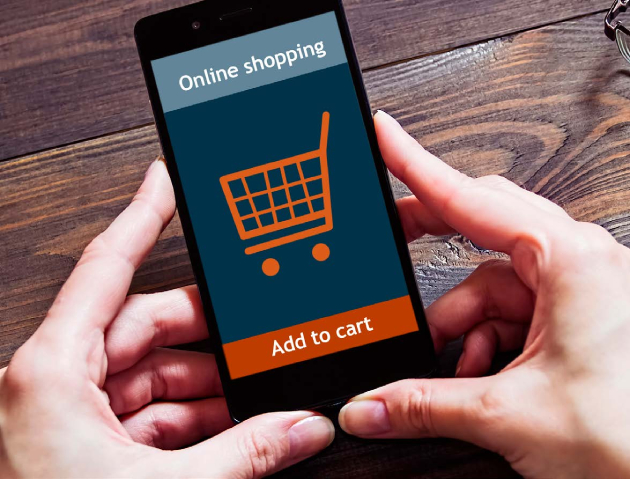Expanding a UK-based ecommerce business internationally is an exciting opportunity for growth and revenue expansion. However, launching products in international markets requires careful planning and execution to ensure success. From adapting product descriptions and marketing materials to navigating customs and shipping regulations, there are many challenges to overcome when expanding internationally. In this blog, we will explore the steps that UK-based ecommerce companies can take to successfully launch their products in international markets. We will also discuss how partnering with a third-party logistics provider can help businesses streamline their international operations and provide a positive customer experience. Whether you are a start-up or an established enterprise, this guide will provide practical advice to help you achieve success when expanding your ecommerce business internationally.
Here are some steps to consider when launching a product internationally:
Conduct market research and build an online presence.
Before launching your product in a new market, it’s important to understand the local market conditions, consumer preferences, and competition. It is also crucial that you have a strong online presence for a successful transition to the eCommerce international markets.
Develop a localisation strategy.
You should consider hiring local translators, designers, and marketers to help you create content that resonates with the target audience.
Consider international payment options.
You’ll need to offer payment options that are familiar and convenient to your international customers. Consider partnering with local payment processors or accepting popular international payment methods like PayPal.
Determine your logistics and shipping strategy.
You will need to develop a concrete strategy for shipping your products to international customers, which will involve navigating different shipping regulations, customs procedures, and taxes. You should consider partnering with a logistics company that has significant experience with international shipping to help you streamline this process.
Establish customer service and support.
Make sure you have a plan in place to handle customer queries, returns, and support in the local language and time zone. This aspect of your international shipping strategy can be outsourced to a third-party logistics partner just like Diamond.
Before your UK-based ecommerce company can deliver orders internationally, there are a few things you will need to have in place. The business will need to determine which shipping options are available for international deliveries. This includes identifying the most cost-effective and reliable shipping methods, as well as any customs or import/export requirements. You will also have to ensure that the product descriptions on their website accurately reflect the product being sold. Your company will need to ensure that your products are packaged appropriately for international shipping, with adequate protection against damage during transit. This may involve using specialised packaging materials or custom-designed shipping boxes. You will also have to be aware of the customs and import/export regulations for each country that you plan to ship to. This includes any restrictions on the types of products that can be imported, as well as any duties or taxes that may apply. You will have to offer payment options that are familiar and convenient to their international customers. This may involve accepting popular international payment methods like PayPal or partnering with local payment processors.
Since the UK’s exit from the European Union (EU), customs clearance has become a significant complication for UK-based ecommerce businesses. This is because the UK is now considered a “third country” by the EU, meaning that goods shipped between the UK and the EU are subject to customs declarations and inspections. This has resulted in additional paperwork, delays at borders, and increased shipping costs, particularly for businesses that are not familiar with the customs clearance process. Additionally, the UK has introduced its own set of customs procedures for goods imported into the country, adding another layer of complexity. These complications require businesses to be well-informed on customs procedures and regulations, which can be time-consuming and challenging for smaller businesses.
Diamond clients who have successfully launched their products internationally:
Solent International:
Solent International are one of our clients who have successful launched their business internationally and have increased revenue and growth as a result of their adaption into new markets. They are a pioneering FMCG company that help people feel better in a sustainable way and due to the nature of their fast-moving business, they required a streamlined international delivery process. Thanks to their own ingenuity and with support from Diamond, Solent deliver their consumer goods to over 24 countries globally. Over time, they are now considered to be global market experts in their industry and even use the term to describe their business, “positively disrupting markets to make people feel better in a sustainable way.”
Makers Cabinet:
Founded in 2017, Makers Cabinet was established by a team of designers, Odin Ardagh, Benjamin Weininger and Noah Bier, who met while studying Product Design at Central Saint Martins. The ideology behind the brand is to reduce the amount of waste generated by the stationary industry and create long-lasting and sustainable tools for writing and design. The business also wanted to carry their sustainability goals across to their shipping process and use Diamond Guildford to handle their fast, affordable and green shipping requirements. We support the shipment of products throughout the UK and Europe.
7879 Jewellery:
Our client 7879 is an international jewellery house which took inspiration from the periodic table to create their brand name. On the periodic table, 78 is the atomic number of platinum, while 79 is the atomic number of gold. They have used this name in order to reflect the purity of their jewellery as you will only find these two components in their pieces. When dealing with such high value products engaging with a logistics partner that has knowledge of international delivery processes, as well as experience in safe and secure packaging, is paramount for a brand like 7879. Working with Diamond, they have not only cemented their position in their industry as an outstanding jewellery producer but are also seen as a reliable brand that delivers on time with aesthetically pleasing packaging.
Expanding your UK-based eCommerce business into international markets can be a challenging but rewarding endeavour. Businesses need to be aware of the complexities and risks involved, however, by taking the necessary steps businesses can successfully navigate the processes and procedures that need to be in place in order to ship internationally. As mentioned above, partnering with a third-party logistics provider can also help your business streamline your international operations and ensure a positive customer experience. With careful planning and execution, your UK-based ecommerce businesses can successfully launch your products in international markets, expand your customer base, and increase your revenue. If you would like to know more about Diamond’s international delivery service or fulfilment support, simply call 0333 567 5888, email sales@diamondlogistics.co.uk or complete the form below.






